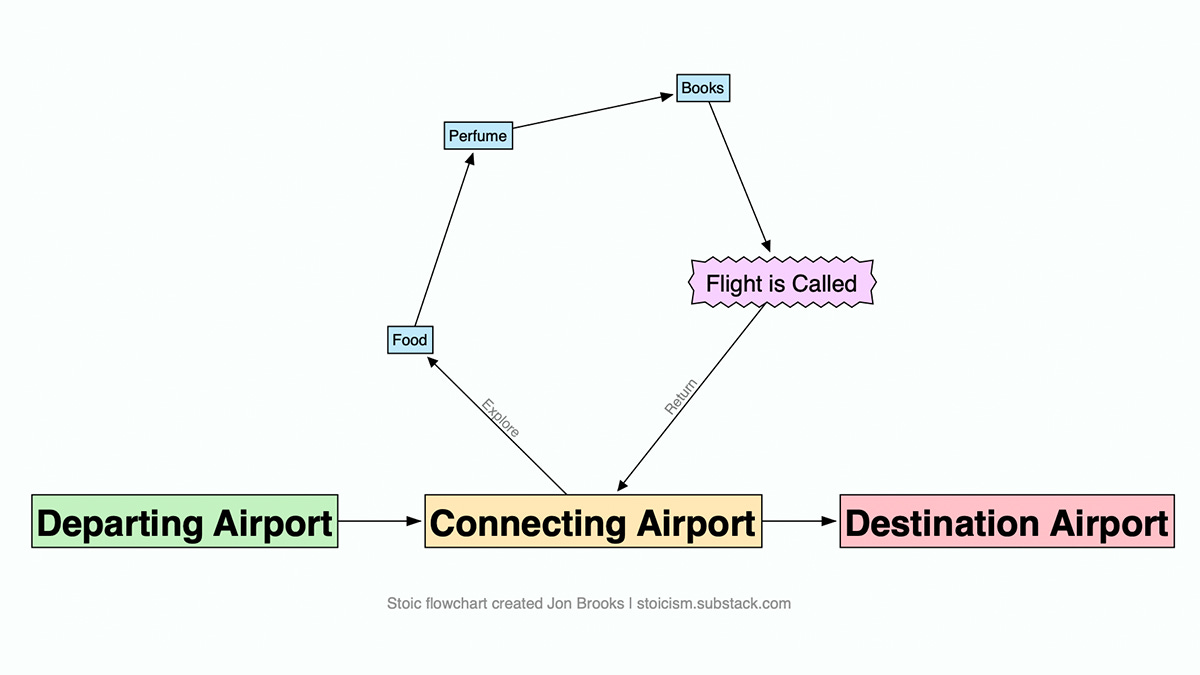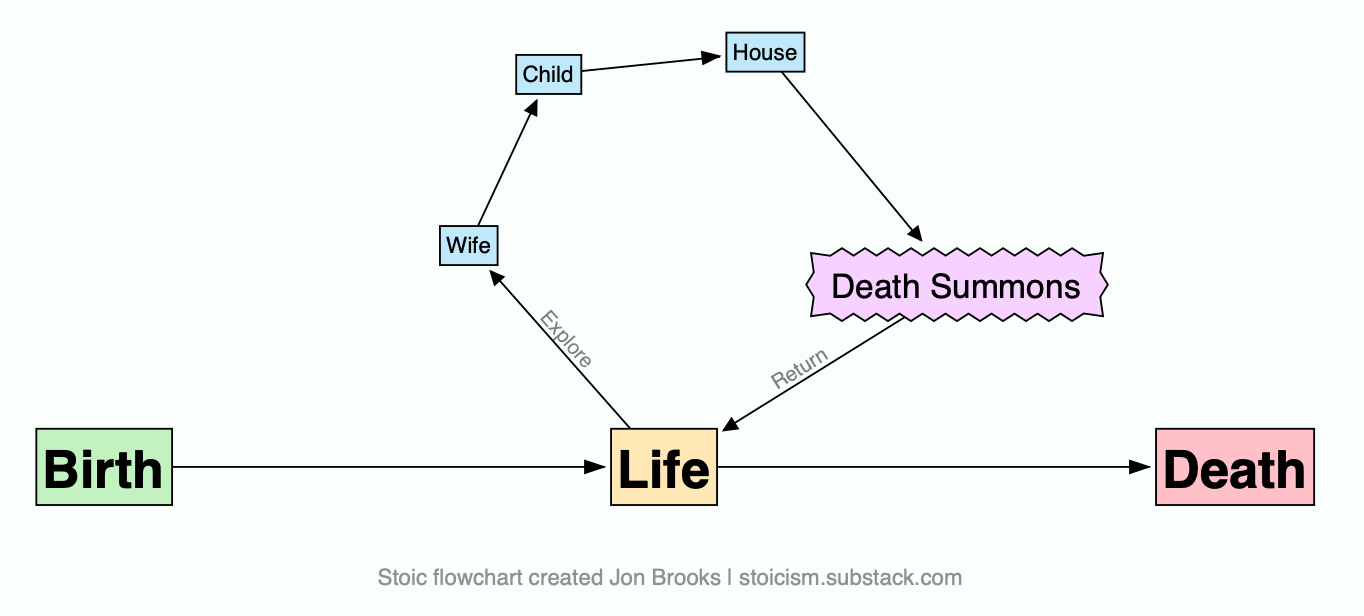
In Chapter 7 of Epictetus’ handbook, he provides us with an analogy for life that helps us remember how everything is borrowed and one day we must give it back.
Below I creatively repurpose his analogy for modern readers, but the message remains the same:
You can never live without the promise of death, and you can never own something without the promise of loss.
If we know this, how can we reduce the unnecessary suffering?
I/ Recognise Impermanence
You are travelling home on an aeroplane and stop halfway for a connecting flight.
While you are at the connecting flight’s airport waiting for your plane, you may go and eat a nice meal and peruse the perfume shops.
But you must not forget about your next flight.
You have to keep looking at the airport screens to know what gate to go to and when.
When your flight is called, you have to stop what you are doing and head to the right gate.
If you don’t, you may be stranded in the wrong country until you eventually get deported.

This is a good analogy for life.
II/ Be Ready to Return
Instead of a nice meal and perfume, you have instead picked up a wife and child.
This is great, but when your next flight comes you must be prepared to leave them behind, and be okay with that.

III/ Don’t Wander Too Far
If you are elderly, don’t wander too far around the airport or you won’t make your next flight when it gets called.

ENCHIRIDION CHAPTER SEVEN, EPICTETUS, TRANSLATION BY ROBERT DOBBIN:
If you are a sailor on board a ship that makes port, you may decide to go ashore to bring back water. Along the way you may stop to collect shellfish, or pick greens. But you always have to remember the ship and listen for the captain’s signal to return. When he calls, you have to drop everything, otherwise you could be bound and thrown on board like the livestock.
So it is in life. If, instead of greens and shellfish, you have taken on a wife and child, so much the better. But when the captain calls, you must be prepared to leave them behind, and not give them another thought. If you are advanced in years, don’t wander too far, or you won’t make it back in time when the summons reaches you.




What exactly means "Don’t Wander Too Far"? Having a career and grandchildren means "too far"?